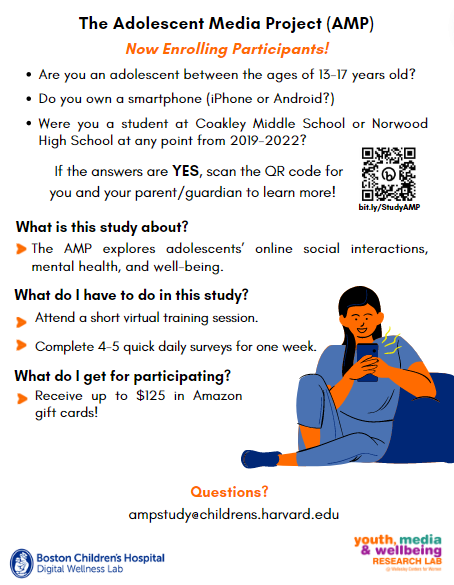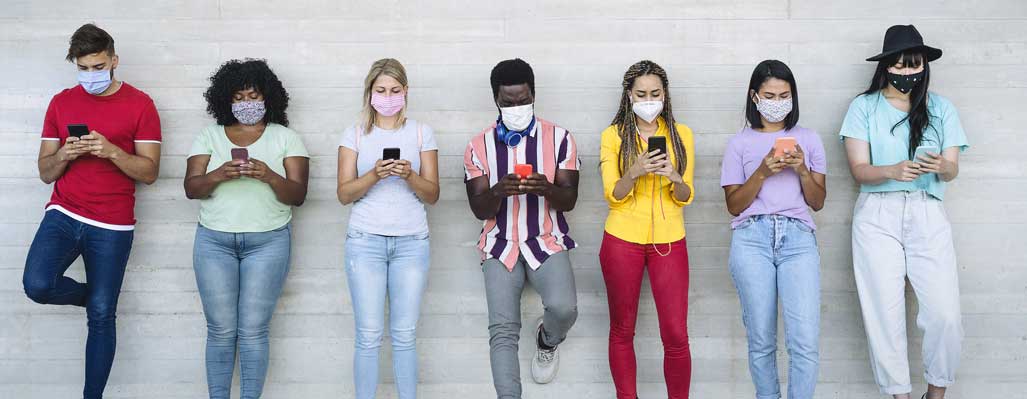The Adolescent Media Project, a collaborative study between the Youth, Media & Wellbeing Research Lab and the Boston Children’s Digital Wellness Lab, aims to better understand the contexts and characteristics that influence how social media use connects with mental health and wellbeing for young adolescents. It capitalizes and expands upon an existing longitudinal study and, for a subset of young users (13- to 14-year-olds), utilizes data that assesses adolescents moment-by-moment.
The study’s primary aim is to determine the specific characteristics (e.g., demographics) and social contexts (e.g., COVID pandemic, family media rules) of adolescents’ online social interactions (e.g., relationship of the people interacting, content of interaction, total amount of use) that are associated with indicators of mental wellbeing.
The study’s significance lies in 1) furthering scientific understanding about standardized data collection methods and innovative technology to systematically document early adolescent digital interactions at a more timely, contextualized level, and 2) identifying contextual variables and individual characteristics that are associated with risky and resilient social media use. In the long term, findings will be applicable to interventions designed to encourage online behaviors linked to positive mental health outcomes and discourage others.
Now Enrolling Participants!
Are you an adolescent between the ages of 13-17 years old? Do you own a smartphone (iPhone or Android)? Were you a student at Coakley Middle School or Norwood High School at any point from 2019-2022? If yes, click here for you and your parent/guardian to learn more.



